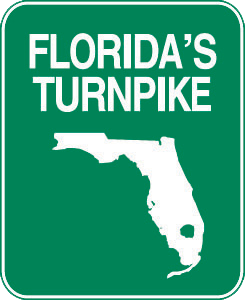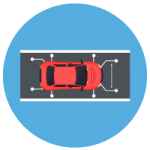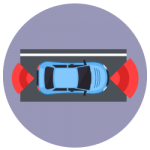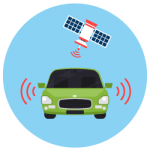Our Central Florida AV Partners
Recent News and events
NewsNight: The Future of transportation in Central Florida
This week, NewsNight looks at how Central Florida’s growing population is putting pressure on the region’s transportation infrastructure. We examine plans for new roads and public transit services, and discuss [...]
Florida: The next hotbed of AV tech?
ORLANDO — Fifty years after Florida rallied for a moonshot, the state's government and industry leaders have coalesced around another breakthrough technology that will be deployed closer to home. Executives [...]
Video: Get ready to see more self driving cars on Florida roads
Get ready to see more self-driving cars on Florida roads. Link to VIDEO.
Orlando hobnobs with Uber, Toyota, Nissan in push to lead driverless car industry
A conference attracting some of the heaviest hitters in autonomous vehicles could be the first step in making Central Florida a hub for the fast-emerging driverless car industry. The four-day [...]
Orlando lands San Francisco autonomous vehicle summit for the first time
Orlando will host the 2019 Automated Vehicles Symposium next week July 15-18. It's the first time the event will take place outside of San Francisco. “Orlando is poised to become [...]
Florida gives the green light to fully autonomous vehicles
A new bill signed into law by Florida Governor Ron DeSantis will allow fully automated vehicles onto public roads, without a safety driver behind the wheel. The measure goes into [...]
Florida’s new bill lets driverless cars be tested with minimal restrictions
Presently, there are few places where a company can test out its self-driving cars without the requirement of a human safety driver in the car ready to intervene, California being [...]
Orlando poised to become capital of autonomous vehicle research
Autonomous vehicles represent the future of transportation. When they replace human drivers, the world will see far fewer accidents, less traffic congestion, lower emissions and other huge benefits. But to [...]
Why Central Florida
Florida is not new to AVs. Central Florida began exploring AV technology in 2011 with the connected vehicle-affiliated testing bed along I-4. In 2012, the Florida Automated Vehicles (FAV) program was established to lead the state in developing best safety practices and promote awareness for AVs and relevant technology. House Bill 7027 was passed in 2016, which cleared the way for all forms of AV testing.
The Central Florida AV Partnership includes regional agencies and entities that have demonstrated leadership and significant contributions towards mobility challenges. Research and simulation will be conducted at some of the area’s universities, including the University of Central Florida and Florida Polytechnic University. Safety and policy compliance review will be managed by the College of Law within Florida A&M University-Florida State University (FAMU-FSU) College of Engineering. Other participating facilities include the Roadway Network and Swamp Works Lab at NASA’s Kennedy Space Center, the UCF Transportation Lab, the City of Orlando’s downtown urban core, interstates, expressways, and SunTrax—the only dedicated high-speed AV and tolling testing center in the southeastern United States.
Five Levels of Autonomous Vehicle
Five Modes of Travel
Automobiles
Autonomous vehicles, or self-driving vehicles, equipped with sensors and on-board computers, can sense their environment and guide themselves with partial or no human conduction. This will help in the reduction of accidents caused by distractions.
Freight
Connected trucks or platooning trucks, are equipped with driving support systems which allow one truck to follow the other closely. Platooning trucks maintain a communication link and share data and action among the convoy, increasing fuel efficiency and improving safety on highways.
Transit
Autonomous or self-driving buses and shared vehicles operate on fixed routes and provide a controllable environment for vehicle automation. Driverless buses can significantly reduce crashes, provide user convenience and reduce congestions.
Bike-Ped
Autonomous vehicles have been proven to effectively detect pedestrians and bicyclists, potentially preventing crashes from taking place by taking control of the vehicle if the driver is distracted. In addition, future wearable devices can be utilized to improve the safety of pedestrians and bicyclists.
Space
Advanced control system will achieve a robust balance between the on-board computer of the vehicle and the pilot. Well-developed human-automation systems optimize the allocation of responsibility and enhance the performance of both human and machine.














